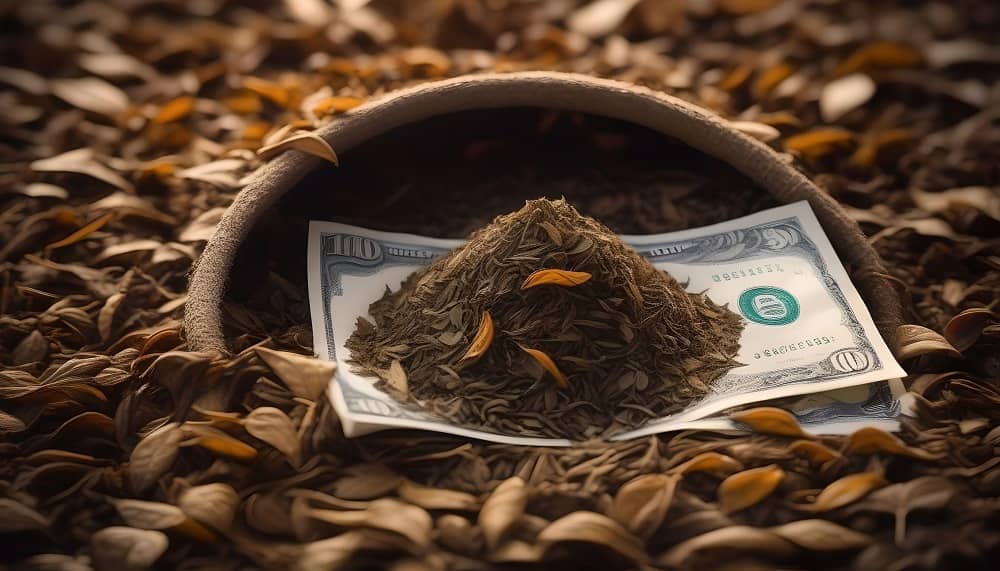
In a revelation, recent reports from Iranian state-controlled media have exposed a massive economic corruption case within the country’s tea industry.
This scandal, considered one of the largest in the history of Iran’s clerical dictatorship, has highlighted the growing disparity between the impoverished population and the corrupt elite.
At the center of this scandal is the Debsh Agriculture and Industrial Group, managed by Akbar Rahimi, a figure known as part of the “smuggling brothers.” This group, with deep connections to the regime, especially the Revolutionary Guards, has been accused of misappropriating approximately $3.37 billion allocated for tea imports and advanced machinery between 2019 and mid-2022. Shockingly, $1.4 billion of this amount has not been accounted for in imports, with suspicions of the funds being sold in the open market at inflated rates.
The manipulation of the official exchange rate, the “Nimaee-dollar,” has been instrumental in this corruption. This rate, available only to regime-affiliated traders, is significantly lower than the market rate, allowing for huge profits for the corrupt officials involved. The Debsh group reportedly ordered high-grade Darjeeling tea but imported lower-quality tea from Kenya and secondary exports from Iran, selling it at inflated prices.
Watch and judge why #embezzlement is breaking new records in #Iran pic.twitter.com/Zpzd4n1qLz
— NCRI-FAC (@iran_policy) December 6, 2023
This case has also revealed a broader network of corruption involving several banks, institutions, and ministries, including the Ministry of Industry, Agriculture, Customs Administration, Central Bank, Trade Development Organization, and the Food and Drug Organization. These entities have been implicated in various malpractices, including the mismanagement of Tehran Municipality’s budget, misappropriation of marriage loans in Qom, and inappropriate allocation of foreign exchange subsidies.
The reaction to these revelations has been varied. Some state-affiliated figures and analysts have engaged in intense discussions, while the general response from the Iranian public has been relatively subdued. Notable figures like Abbas Abdi, a former intelligence interrogator and now a political activist, have suggested that such high-level corruption must have involved the knowledge of top-ranking officials. Meanwhile, judiciary spokesman Masoud Stayeshi admitted the involvement of a “private, non-governmental company” but acknowledged the significant allocation of resources to this corrupt enterprise.
#Iran’s latest embezzlement case of 920 trillion rials involving the state-run #Isfahan Mobarakeh Steel Company has once again shocked the country’s #poverty-riddled population.https://t.co/0qt8ocE4QI
— NCRI-FAC (@iran_policy) August 25, 2022
Economic journalist Maryam Shokrani highlighted the impact of this corruption on the tea market, pointing out the discrepancy between import volumes and national needs, leading to inflated prices and significant losses for domestic tea cultivators. Mohammad Sadegh Hassani, of the Union of Northern Tea Factories, echoed these concerns, noting the industry’s crisis due to market imbalance and overstocking in warehouses.
This scandal, unfolding during a time of widespread economic hardship for many Iranians, has cast a spotlight on the deep-seated corruption within the regime, challenging the integrity of its governance and the well-being of its citizens.

MEK Iran (follow us on Twitter and Facebook), Maryam Rajavi’s on her site, Twitter & Facebook, NCRI (Twitter & Facebook), and People’s Mojahedin Organization of Iran – MEK IRAN – YouTu
